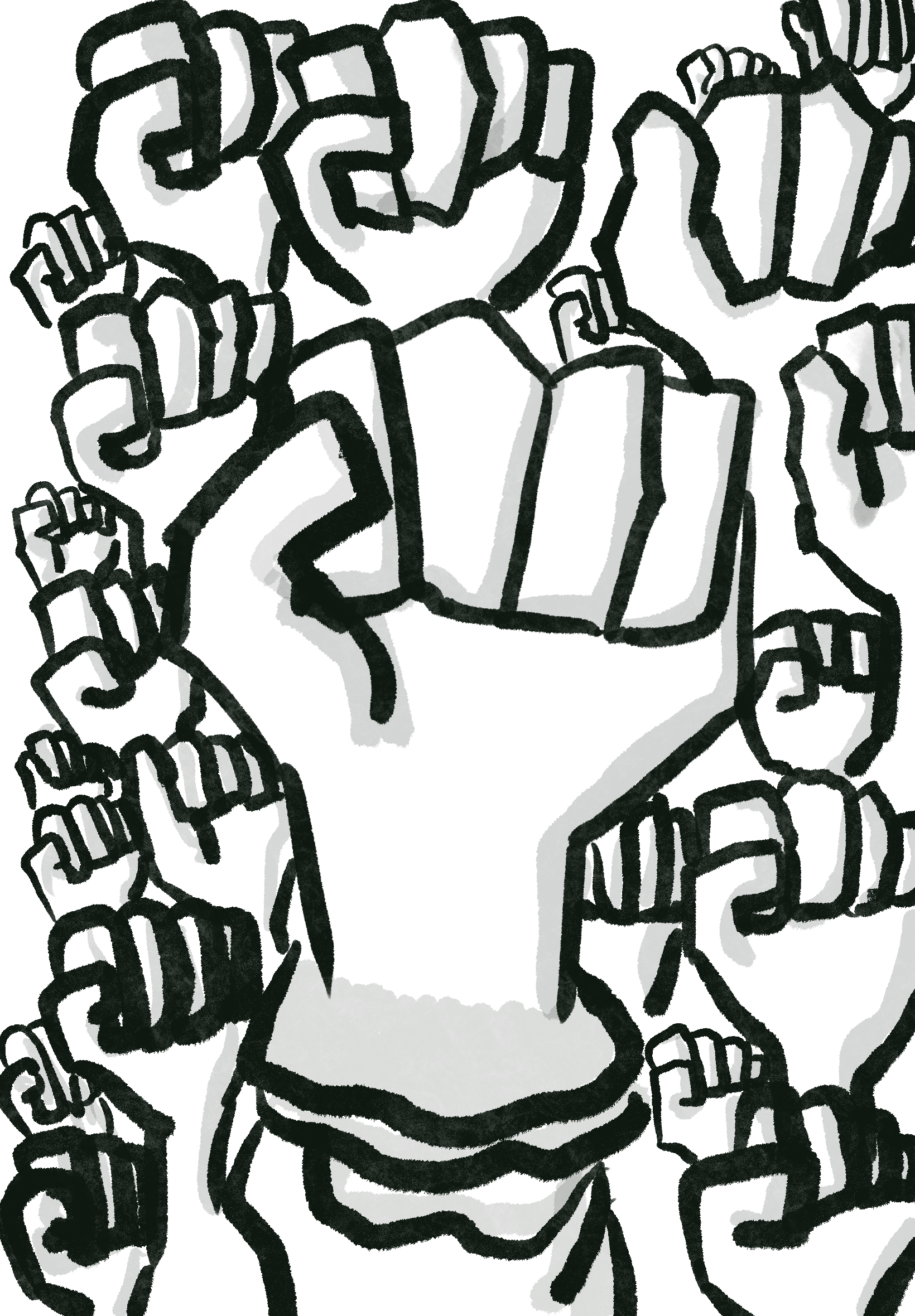- BlackVoter.Org
- Posts
- Blackvoter.org Issue #5
Blackvoter.org Issue #5
Empowering Awareness: Stay Grounded With Blackvoter.org Newsletter!

Did you know? Despite African Americans contributing significantly to the US economy, collectively spending over $1.4 trillion annually, their median wealth remains a fraction of that held by white households? In fact, the average net worth of a white family is nearly 10 times that of a Black family. This stark wealth disparity highlights the urgent need for systemic change and economic empowerment within our communities!

Public sentiment toward Harris County District Attorney Kim Ogg is shifting, as many Democrats who initially backed her are now turning against her. Ogg campaigned as a reform-minded prosecutor, advocating for bail reform and diversion programs for low-level offenses.
However, she has faced criticism for her opposition to a legal settlement that ended cash bail for most misdemeanor offenses. Critics argue that her policies have contributed to a rise in violent crime and a jail-crowding crisis.
Ogg's challenger in the Democratic primary, Sean Teare, a former assistant district attorney, has gained support from progressives and former colleagues who believe he can address the issues created under Ogg's leadership. Teare supports bail reform and diversions for nonviolent drug offenders but criticizes Ogg's handling of murder cases and her reluctance to take responsibility for problems within her office.
Ogg disputes the criticisms and accuses Teare of running a campaign backed by a political trickster and billionaire donor George Soros. Ogg faces a tough primary race as Teare leads by a significant margin in recent polls.

A predominantly African-American church in Dallas, Texas, has successfully stopped the construction of a warehouse near its property after filing a lawsuit alleging "environmental racism." Friendship-West Baptist Church was granted an injunction by a Dallas district court judge, which prompted Stonelake Capital Partners, the developer, to halt the project.
The church argued that industrial sites have historically been placed in low-income neighborhoods where people of color reside, causing negative impacts on these communities. The proposed warehouse location was near the church, a government building, and a neighborhood with many senior citizens.
The church and its attorney claimed that the increased truck traffic would pose safety risks and have a negative environmental impact. The attorney is seeking damages for the loss of property value and enjoyment, as well as the lost opportunity for development in line with community needs.
The pastor of Friendship-West Baptist Church, Rev. Dr.
Frederick D. Haynes, has been an active proponent of civil rights issues and has previously labeled the truck yard in the neighborhood as environmental racism.

The Black Muslim Leadership Council, a newly formed organization, aims to pressure elected officials, including President Joe Biden, to call for a permanent cease-fire in the Middle East. The group believes that many of its members focus on U.
S. domestic challenges and are not ready to abandon the president at this time, although another Muslim group called "abandon Biden" is pushing for just that.
The council is looking to address both international and domestic issues, including mobilizing voters in swing states and pushing for policies that benefit Black Muslims in the US. It plans to focus its efforts on turning out voters in Michigan, Pennsylvania, and Georgia, and will have both a political action wing and a nonprofit arm.
The formation of the Black Muslim Leadership Council is hoped to encourage political leaders to engage more with Black Muslim voters and understand their concerns on various issues.

Black History Month is a time to reflect on the incredible achievements and struggles of Black individuals throughout history. From historical figures like Mansa Musa and Sojourner Truth, to social movements like the Black Panther Party and #BlackLivesMatter, the impact of Black history is profound and ongoing.
Notable political figures such as Barack Obama and Shirley Chisholm have broken barriers and inspired generations, while scientific contributors like George Washington Carver and Mae Jemison have made groundbreaking advancements in their fields. It is important to recognize that Black history is not just a thing of the past, but something that continues to shape the present and future of society.
By promoting inclusivity and learning from those who came before, we can work together to build a better world. So let's celebrate and honor Black history every day, and strive for a fair and equal society.

The Black business boom in the United States is reshaping the country's economic landscape, with Black-owned businesses growing at the fastest rate in over 30 years. This surge is a testament to the resilience and innovation of Black entrepreneurs, but it also highlights the need for common-sense policies and resources to help them thrive.
Black-owned businesses generate $206 billion in annual revenue and support 3.56 million jobs, making significant contributions to the economy.
However, these achievements have not come easily, as Black entrepreneurs face challenges and systemic barriers, such as limited access to capital and lower funding rates compared to white entrepreneurs. To ensure success, Black businesses need support from legislation, such as the Bipartisan Infrastructure Act, which provides funding and provisions to help Black-owned businesses.
Mentoring within the community is also crucial, as it can inspire and guide young entrepreneurs. Consumers and major corporations should also play a role in intentionally supporting Black-owned businesses all year round.
By investing in Black entrepreneurship, the country can create a future that is diverse, innovative, and economically prosperous for all.

According to the annual "State of Black America" report by the National Urban League, Black Americans have made significant economic and civil rights progress in the past 60 years since the enactment of major civil rights legislation. However, the report also states that this progress has been slowed down by legal challenges to the Civil Rights Act of 1964 and opposition to initiatives aimed at advancing racial progress.
The report highlights several barriers to economic advancement and political participation that Black Americans still face, including a persistent income gap and limited opportunities in education. It also criticizes the Biden administration for falling short of promises made to the Black community, particularly in areas such as voting rights and policing reform.
The report concludes that at the current pace, it would take several more centuries for most Black Americans to achieve parity with their white peers. Despite efforts to advance racial progress, resistance from conservative activists and challenges to diversity and inclusion initiatives have hindered the journey to equality.

In this article, Matthew Miles discusses the progress and setbacks that have occurred in the pursuit of democracy and civil rights in the United States. He highlights various challenges that continue to hinder social mobility for African Americans, such as inequitable access to affordable housing and financial literacy.
Miles also points out the increasing costs of college education, which result in many students having to work while in school or facing heavy student loan debts. He emphasizes the importance of teaching young adults multiple sources of income and providing educational tools to navigate life choices, which can create entrepreneurship opportunities and help close the racial wealth gap.
Miles further discusses the need for churches to develop emergency plans and precautions to ensure the safety of their members, as well as the persistence of stigmas surrounding mental and physical health in communities of color. He concludes by acknowledging the progress that has been made but expressing the necessity for a bold stand and declaration for change in order to overcome obstacles and fulfill the democratic promise of the Civil Rights era.

As Black History Month comes to a close, it is important to address the health disparities that persist in the Black community, particularly when it comes to cancer. According to the Centers for Disease Control and Prevention (CDC), Black individuals face higher rates of cancer incidence and mortality compared to other racial groups.
Specifically, Black men are more likely to develop and die from prostate cancer, while Black women have higher mortality rates from breast cancer. These disparities can be attributed to various factors, including socioeconomic status, racial bias in preventive care, and inadequate access to healthcare facilities.
Early detection is crucial in improving treatment outcomes, and experts recommend early screenings for prostate and breast cancer, especially for those with a family history of the diseases. Despite these grim statistics, prevention and early detection provide hope in combating these cancers that disproportionately affect the Black community.

Hyundai Motor America has paid tribute to the African American community in honor of Black History Month. The company engaged in various initiatives and sponsorships to show its dedication to the community.
As part of its philanthropic commitments, Hyundai donated $25,000 to Howard University's HBCU-Africa Correspondents Corps program, which provides opportunities for African and African diaspora students to pursue careers in international affairs. Additionally, Hyundai's Progress Project provided financial support to Black-owned businesses, with award recipients in Michigan receiving donations of $15,000 each.
The company also sponsored Pandora's Celebration of Black Creativity in the Arts in New York, promoting the contributions of Black thought leaders in various artistic mediums. Hyundai also launched its 2024 Sonata marketing campaign, titled "Smell the Flowers," which aims to recognize the influence and power of African American women as consumers and changemakers.
The campaign was developed in collaboration with Culture Brands, an African American-focused marketing agency. Through these various initiatives, Hyundai demonstrates its commitment to diversity, inclusivity, and community engagement.

The war in Gaza between Israel and Hamas has sparked a surge of anti-Zionist sentiment among Muslims in the West, including in the US. The American Muslim community, which has been politically active since 9/11, has expressed strong opposition to President Joe Biden's support for Israel in this conflict.
Many American Muslim activists, clerics, and organizations have condemned Israel's military actions and criticized Biden for his stance, with some accusing him of genocide. This opposition from the American Muslim community could have implications for the 2024 presidential election, as surveys suggest that Biden's support among young voters and the Arab and Muslim public is declining.
Swing states with significant Arab-American and Muslim populations, such as Michigan, Arizona, and Georgia, could be especially impacted by this opposition. However, there are challenges to the Muslim community uniting as a solid political force, as it is highly diverse and has internal divisions.
Additionally, other factors such as the issue of LGBTQ rights could also influence Muslims' support for Biden. Ultimately, the outcome of the election will depend on whether the war in Gaza continues and the level of intensity of feeling within the American Muslim community.

California U.S.
Senator Laphonza Butler has been prioritizing the needs of the Black community since her appointment in October 2023. In the past five months, she has held listening sessions across the state to address issues such as mental health, reproductive freedom, and the future of democracy.
On February 26, Senator Butler attended a meeting of the National Newspaper Publishers Association (NNPA) to discuss the challenges that Black media face in doing business with the federal government. The event was hosted by NNPA Chairman Emeritus Danny J.
Bakewell, Sr. and attended by publishers from across the country.
Senator Butler has always been an advocate for the Black press and plans to take the concerns of publishers back to Washington, D.C.
and advocate for increased representation and national advertising opportunities. Following the meeting, Senator Butler visited California State University - Dominguez Hills to discuss mental health and youth advocacy.
She participated in a town hall hosted by the Born This Way Foundation, where she emphasized the importance of collaborative solutions that involve all stakeholders. Throughout her visit, Senator Butler reaffirmed her commitment to representing all Californians and championing progress in the Senate.
LASTLY……Today, let us harness the power within us to create positive change, not just for ourselves, but for generations to come. Together, we hold the key to unlocking the full potential of our communities and building a brighter future for all...!
support the newsletter https://my-store-f56ea8.creator-spring.com/
Thank you